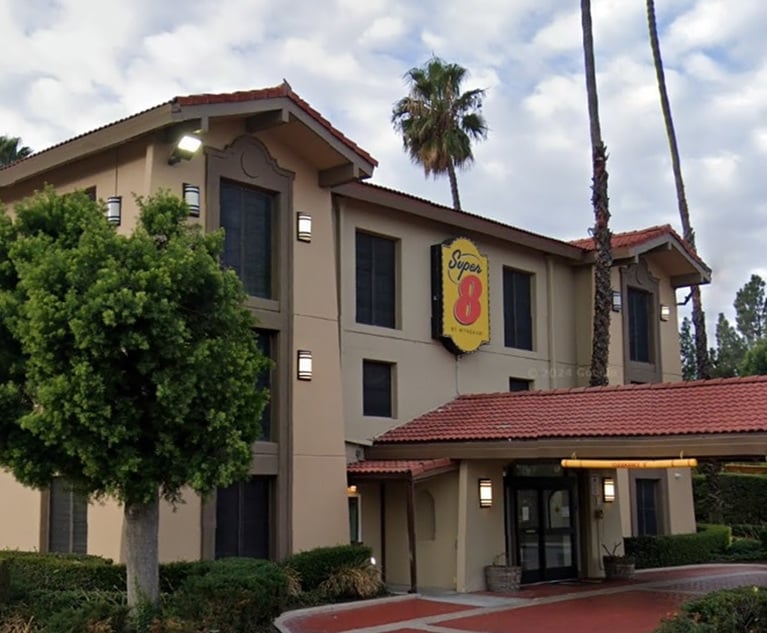Unpublished Opinions fo the Week of July 24, 2017
07-2-3754 Cranio Assoc. v. State Farm Indem. Co., N.J. Super App. Div. (per curiam) (3 pp.) Plaintiff medical provider appealed the dismissal of its…
July 20, 2017 at 03:24 PM
81 minute read
07-2-3754 Cranio Assoc. v. State Farm Indem. Co., N.J. Super App. Div. (per curiam) (3 pp.) Plaintiff medical provider appealed the dismissal of its complaint for frivolous litigation sanctions. Plaintiff asserted that it was underpaid for medical treatment provide to the insured and pursued a PIP arbitration for additional payments. The arbitrator found that the limits of the patient's PIP coverage had been exhausted and that he could not consider the claim for additional funds. Plaintiff asserted it was entitled to sanctions because defendant waited until the day before the scheduled arbitration to advise plaintiff and the arbitrator that the limits of the insured's PIP coverage had been exhausted. The trial judge found no legal basis to award sanctions. Plaintiff contended that defendant's knowing defense of a PIP arbitration while the policy was exhausted qualified as a frivolous defense for the purpose of harassment or delay. The court disagreed and found that the trial judge properly exercised his discretion.
07-3-3784 E. Nursing Serv. I, Inc. v. Amedisys, Inc. N.J. Super. (Caposela, A.J.S.C.) (18 pp.) Plaintiffs sought to vacate the dismissal of their action with prejudice after they located missing documents. Defendants filed a frivolous litigation motion seeking dismissal of plaintiff's complaint alleging wrongful violation of restrictive covenants, disclosure of propriety information, unfair competition and tortious interference with contractual relations. Plaintiff's action was based on a restrictive covenant allegedly signed by former employee but plaintiff produced no document signed by the employee despite numerous discovery demands. Plaintiff did later attached the previously misplaced document to its motion to vacate the order dismissing its complaint. The court found that the deficiency in producing the restrictive covenant was not a garden-variety R. 4:23 discovery issue. Plaintiff admitted lacking the single memorializing document that served as the basis for its claim. The rules gave parties 28 days to cure fatal deficiencies in the pleadings but plaintiff failed to locate the document for well over two years beyond the filing of the complaint. Plaintiff additionally failed to reply in a responsive manner to numerous discovery requests over a period of years and remained noncompliant with its discovery obligations. The court also found that a partial attorney fee sanction was necessary as court orders had not deterred plaintiff form ignoring its discovery obligations. [Filed Jul 12, 2017]
46-2-3742 Brown v. Florham Park Police Dep't, N.J. Super. App. Div. (per curiam) (4 pp.) In his complaint, appellant alleged respondents violated his constitutional rights and “broke many laws.” He alleged respondent-university had surveillance cameras that recorded activity on the campus and gave the recording to respondent-police department in connection with an investigation of an alleged robbery, despite the fact that respondent-police department had not obtained a warrant. He further alleged that respondent-police department fabricated and altered evidence coerced the victim, lied and intimidated witnesses. Despite the complaint being filed beyond the statute of limitations, the trial court dismissed the complaint against respondent-university on the ground that it was not acting under the color of law as required by the New Jersey Civil Rights Act, N.J.S.A. 10:6-2, and by 42 U.S.C. §1983. The trial court further dismissed the complaint against respondent-police department for failure to file a notice of claim as required by N.J.S.A. 59:8-1 to -11. On appeal, appellant argued the trial judge abused her discretion by dismissing the complaint under the statute of limitations without first having a discovery rule hearing and that his delay was due to fighting two criminal charges. The court affirmed holding dismissal was based on grounds other than being untimely. Further, appellant's explanation for failure to file a notice of claim within ninety days had insufficient merit to warrant discussion beyond a citation to N.J.S.A. 59:8-9 which set the requisite time period. Finally, the court declined to consider arguments not raised in the trial court and affirmed dismissal.
This content has been archived. It is available through our partners, LexisNexis® and Bloomberg Law.
To view this content, please continue to their sites.
Not a Lexis Subscriber?
Subscribe Now
Not a Bloomberg Law Subscriber?
Subscribe Now
NOT FOR REPRINT
© 2025 ALM Global, LLC, All Rights Reserved. Request academic re-use from www.copyright.com. All other uses, submit a request to [email protected]. For more information visit Asset & Logo Licensing.
You Might Like
View All



Trending Stories
- 1The Law Firm Disrupted: Scrutinizing the Elephant More Than the Mouse
- 2Inherent Diminished Value Damages Unavailable to 3rd-Party Claimants, Court Says
- 3Pa. Defense Firm Sued by Client Over Ex-Eagles Player's $43.5M Med Mal Win
- 4Losses Mount at Morris Manning, but Departing Ex-Chair Stays Bullish About His Old Firm's Future
- 5Zoom Faces Intellectual Property Suit Over AI-Based Augmented Video Conferencing
Who Got The Work
J. Brugh Lower of Gibbons has entered an appearance for industrial equipment supplier Devco Corporation in a pending trademark infringement lawsuit. The suit, accusing the defendant of selling knock-off Graco products, was filed Dec. 18 in New Jersey District Court by Rivkin Radler on behalf of Graco Inc. and Graco Minnesota. The case, assigned to U.S. District Judge Zahid N. Quraishi, is 3:24-cv-11294, Graco Inc. et al v. Devco Corporation.
Who Got The Work
Rebecca Maller-Stein and Kent A. Yalowitz of Arnold & Porter Kaye Scholer have entered their appearances for Hanaco Venture Capital and its executives, Lior Prosor and David Frankel, in a pending securities lawsuit. The action, filed on Dec. 24 in New York Southern District Court by Zell, Aron & Co. on behalf of Goldeneye Advisors, accuses the defendants of negligently and fraudulently managing the plaintiff's $1 million investment. The case, assigned to U.S. District Judge Vernon S. Broderick, is 1:24-cv-09918, Goldeneye Advisors, LLC v. Hanaco Venture Capital, Ltd. et al.
Who Got The Work
Attorneys from A&O Shearman has stepped in as defense counsel for Toronto-Dominion Bank and other defendants in a pending securities class action. The suit, filed Dec. 11 in New York Southern District Court by Bleichmar Fonti & Auld, accuses the defendants of concealing the bank's 'pervasive' deficiencies in regards to its compliance with the Bank Secrecy Act and the quality of its anti-money laundering controls. The case, assigned to U.S. District Judge Arun Subramanian, is 1:24-cv-09445, Gonzalez v. The Toronto-Dominion Bank et al.
Who Got The Work
Crown Castle International, a Pennsylvania company providing shared communications infrastructure, has turned to Luke D. Wolf of Gordon Rees Scully Mansukhani to fend off a pending breach-of-contract lawsuit. The court action, filed Nov. 25 in Michigan Eastern District Court by Hooper Hathaway PC on behalf of The Town Residences LLC, accuses Crown Castle of failing to transfer approximately $30,000 in utility payments from T-Mobile in breach of a roof-top lease and assignment agreement. The case, assigned to U.S. District Judge Susan K. Declercq, is 2:24-cv-13131, The Town Residences LLC v. T-Mobile US, Inc. et al.
Who Got The Work
Wilfred P. Coronato and Daniel M. Schwartz of McCarter & English have stepped in as defense counsel to Electrolux Home Products Inc. in a pending product liability lawsuit. The court action, filed Nov. 26 in New York Eastern District Court by Poulos Lopiccolo PC and Nagel Rice LLP on behalf of David Stern, alleges that the defendant's refrigerators’ drawers and shelving repeatedly break and fall apart within months after purchase. The case, assigned to U.S. District Judge Joan M. Azrack, is 2:24-cv-08204, Stern v. Electrolux Home Products, Inc.
Featured Firms
Law Offices of Gary Martin Hays & Associates, P.C.
(470) 294-1674
Law Offices of Mark E. Salomone
(857) 444-6468
Smith & Hassler
(713) 739-1250






